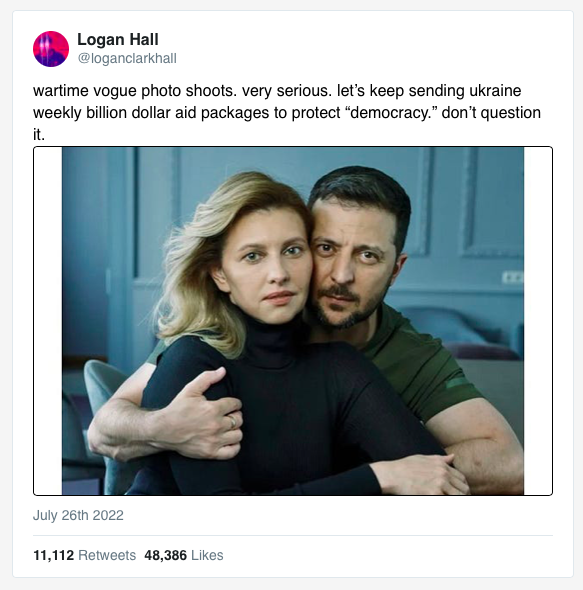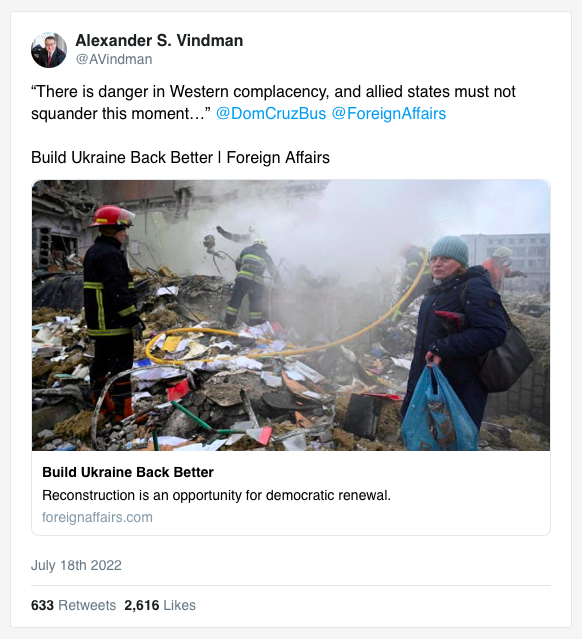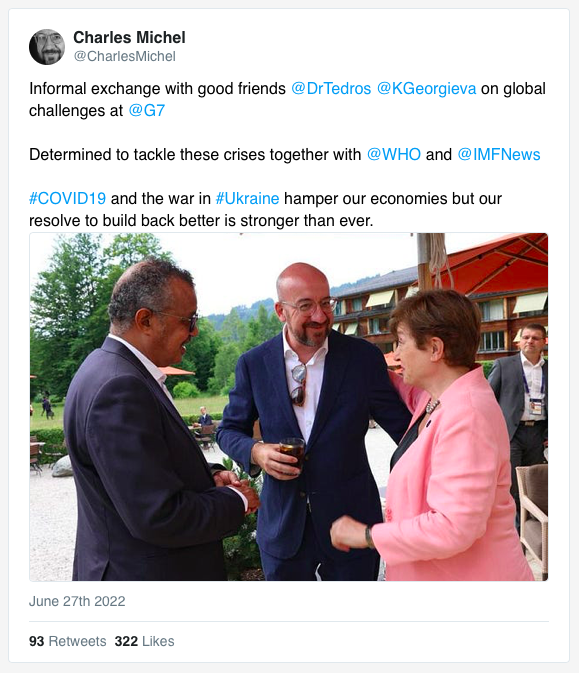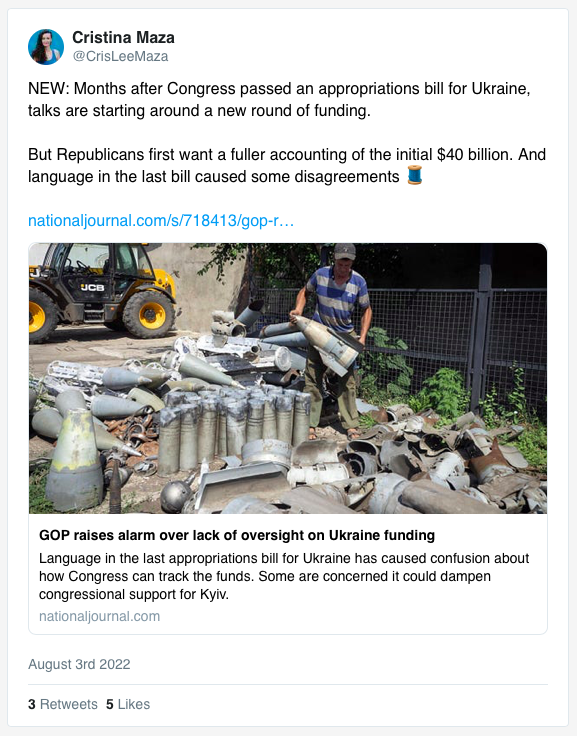Ukraine Claims It Needs $750 Billion More to ‘Build Back Better’
Kiev economics school assessment is funded by USAID.

All Global Research articles can be read in 51 languages by activating the “Translate Website” drop down menu on the top banner of our home page (Desktop version).
To receive Global Research’s Daily Newsletter (selected articles), click here.
Visit and follow us on Instagram, Twitter and Facebook. Feel free to repost and share widely Global Research articles.
First published on August 4, 2022
***
A new US-funded report out of Kiev assesses $108.3 billion in economic damages for Ukraine, but requests a 7x replenishment of $750 billion so that the country can “Build Back Better.”
The Kyiv School of Economics has released a new assessment claiming that Ukraine will need hundreds of billions of dollars to “Build Back Better” from its war against Russia.
As of August 1, 2022, the new update from the Ukrainian institution assesses $108.3 billion in economic damages from the war, roughly the equivalent of the country’s gross domestic product in 2020.
Russia’s invasion of Ukraine has caused $108.3 billion in damage to the country’s infrastructure, according to a study from Kyiv School of Economics released the same day Ukraine’s defense ministry estimated the war has left 3.5 million people homeless. https://t.co/c7mV6cD4Sx pic.twitter.com/ugeeHC9SoZ
— Forbes (@Forbes) August 3, 2022
But as you’ll see in a moment, those damages are rookie numbers. In this era of money printing madness, Ukraine has much more ambitious plans than simply replacing damaged infrastructure. These “expert” economists are about to send the tab soaring.
The study says Ukraine will need a bare minimum of $185 billion, almost twice the amount in damages, in order to repair the nation, citing what they refer to as the “Build Back Better principle.” The slogan was popularized by The World Economic Forum, and is used by governments to refer to their plans to impose digital tyranny and accomplish ESG-compliant objectives.
Ukraine is seeking the “modernization of assets that have not suffered damage and destruction,” the report adds That request will mark up the economic aid request to the tune of $750 billion dollars.
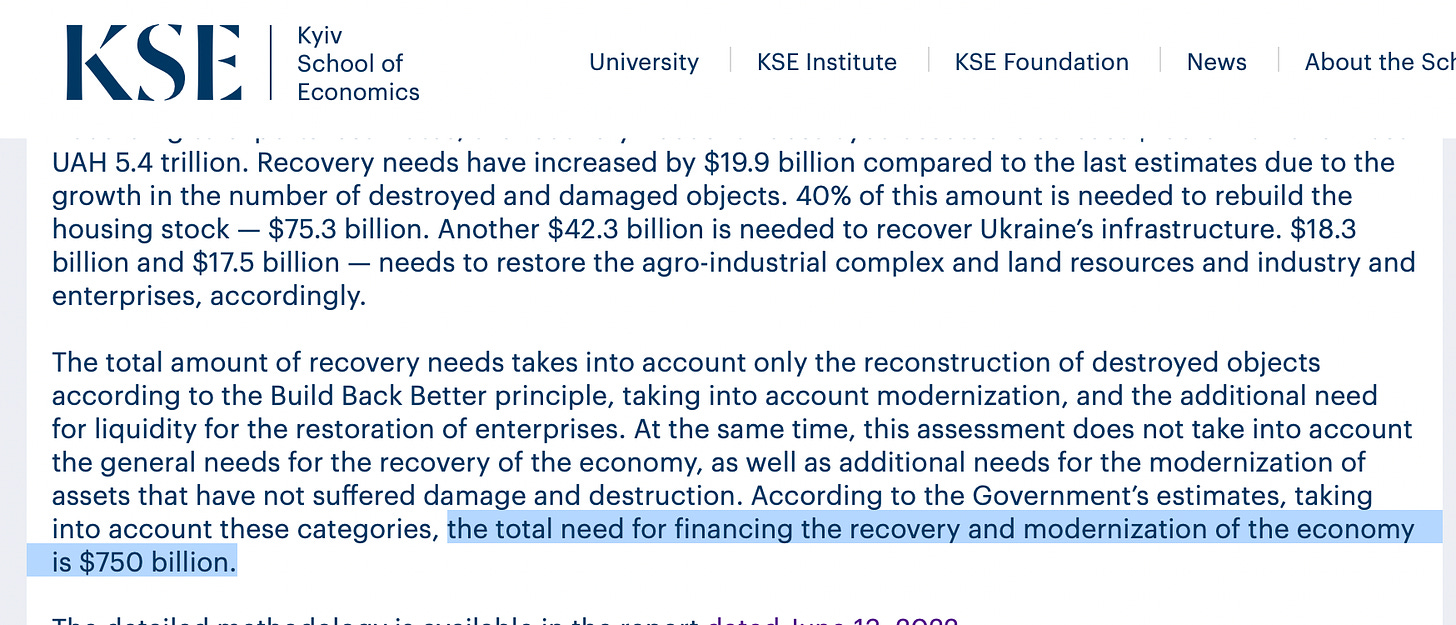
Notably, President Volodomyr Zelensky’s office has previously cited the exact $750 billion number, but claimed it was the total cost of losses.
“Now we are working on a long-term plan for the recovery of Ukraine. It defines the list of national reconstruction programs. We have incorporated the Build Back Better principle into this plan,” Zelensky’s deputy said last month.
At the end of the report, we find that the robust damages assessment is not an independent effort. In fact, it is funded by the U.S. taxpayer, through the U.S. Agency for International Development (USAID).
The “assessment” is just the latest document that advances the continuing global campaign to solicit funds for the rebuilding, reconstruction, and “modernization” of Ukraine, despite the fact that the war is ongoing. There has been a concerted effort in the D.C. lobbying and military contracting space to score massive funds for the “reconstruction” effort.
Meanwhile in D.C., Congress is beginning to whip the votes for a new funding round for Ukraine, yet very few lawmakers having any idea where the first $40 billion ended up.
The Biden Administration continues to send regular military assistance to Ukraine, depleting U.S. stockpiles in the process, and it hasn’t helped the country turn the tide of the war. On Monday, the White House authorized an additional $550 million in weaponry for Kiev.
*
Note to readers: Please click the share buttons above or below. Follow us on Instagram and Twitter and subscribe to our Telegram Channel. Feel free to repost and share widely Global Research articles.
Featured image is from The Last Refuge


